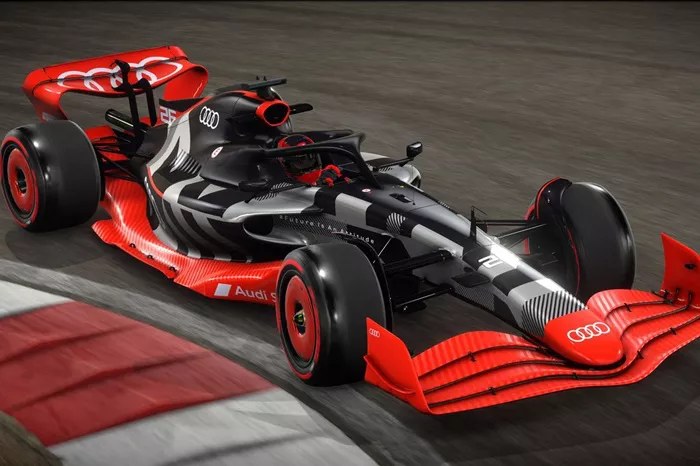The FIA is concerned that a return to V10 engines in Formula 1 could prompt Audi to withdraw if the current 2026 power unit plans are scrapped.
Recent speculation suggests that the new 2026 units—featuring upgraded electrical systems and the removal of the MGU-K—could be abandoned. The current technical regulations are set to remain in place until 2028.
Discussions are ongoing about a potential return to V10 engines, which would run on fully sustainable fuels, a shift that would mark the first use of V10 engines in F1 since 2005, before the transition to V8s.
The 2026 power unit regulations were designed to attract new manufacturers, with Audi leading the way. The company is set to join F1 next season, marking its first entry into the sport. Honda has also returned as a works supplier. General Motors and Ford are involved in F1, with Ford serving as a technical partner to Red Bull’s Powertrains division.
Nikolas Tombazis, the FIA’s single-seater technical director, expressed concerns about Audi possibly pulling out of F1 if the 2026 plans are abandoned in favor of V10 engines.
“We’re still in discussions, and I wouldn’t want to make any premature judgments,” Tombazis told the media, including RacingNews365, when asked about the possibility of reverting to V10, V8, or turbo engines.
“We’re engaging with power unit manufacturers over the next few weeks, and we should avoid jumping to conclusions. We’re proud to have brought Audi into the sport, and we don’t want them to change their decision. We’re also proud to have convinced Honda to return after considering leaving. Everything we do involves a careful balance of many factors.”
Tombazis explained that there is no simple solution that addresses all concerns, such as fairness, cost control, and protecting the investments of manufacturers. The goal, he said, is to find a balanced approach.
Under the 2026 regulations, power units will feature a significant increase in electrical output, rising from 120 kW to 350 kW, nearly a 300% boost. At the same time, power from the internal combustion engine will decrease. Energy captured during braking will also double to 8.5 MJ per lap. Drivers will be equipped with a power boost button, similar to the KERS system used from 2009 to 2013.
Audi’s entry into F1 was officially announced at the 2022 Belgian Grand Prix, after several years of negotiations. Tombazis believes the trend toward increased electrification in F1 was influenced by the growing focus on electric power during discussions in 2020 and 2021.
“Things have changed significantly,” Tombazis said. “OEMs’ views on the speed of electrification have evolved. The trend was clearly in favor of electrification a few years ago, but views have shifted. Even though F1 is in strong financial health, we must remain mindful of global economic uncertainties and the importance of cutting costs.”
He emphasized that any changes would not be made without considering the interests of all participants in the sport. “We must protect F1 while we’re in a strong position, not wait until the situation worsens,” he added. “But we would never make these decisions unilaterally. We aim to respect everyone involved.”

